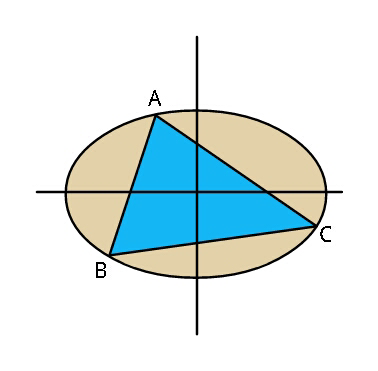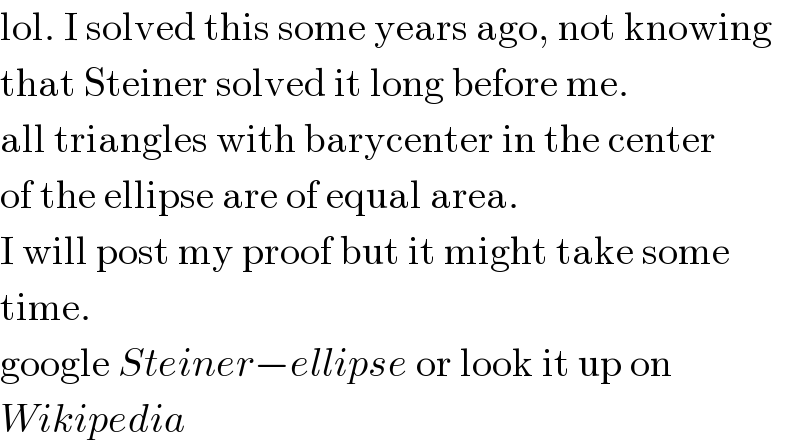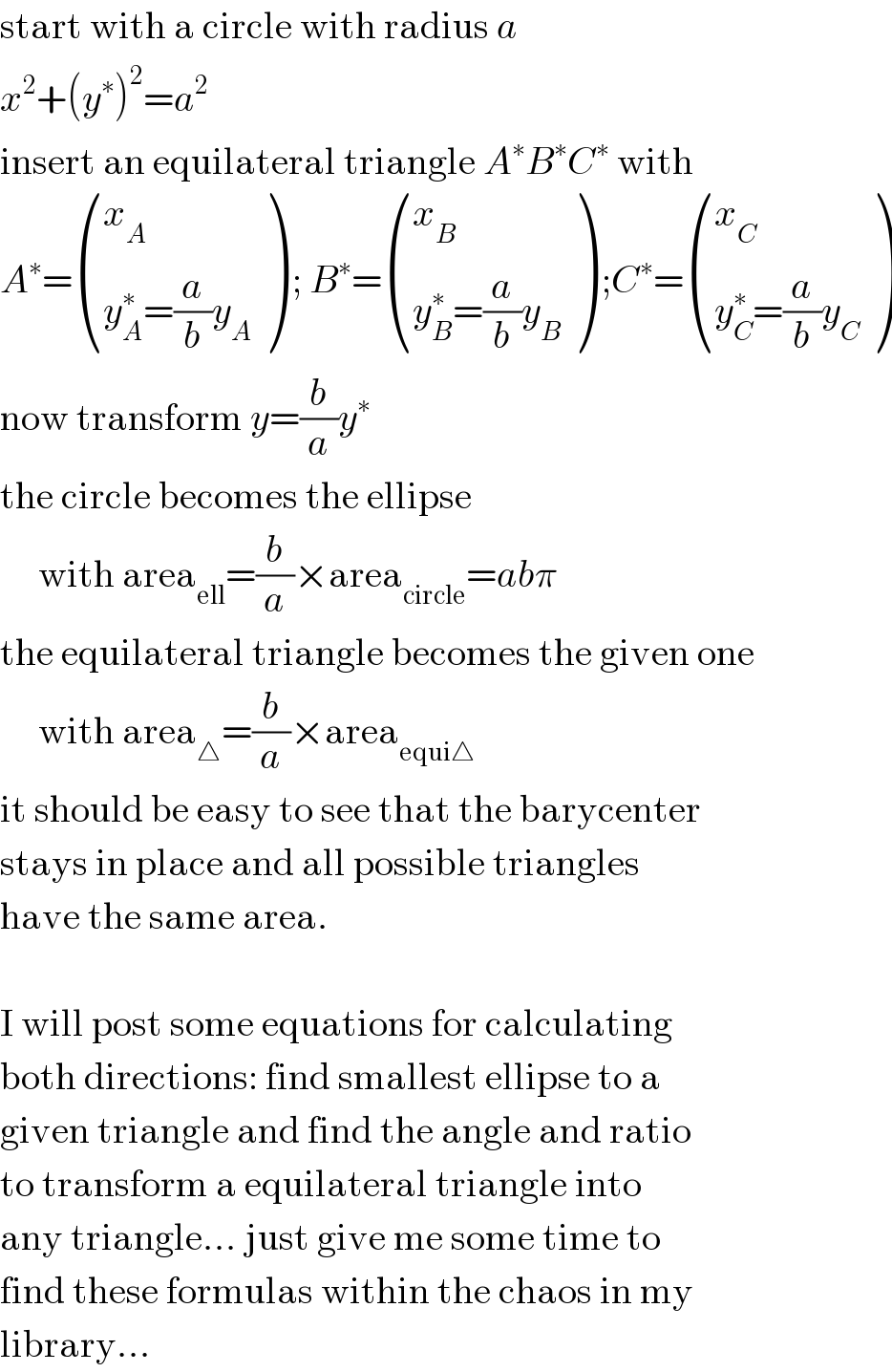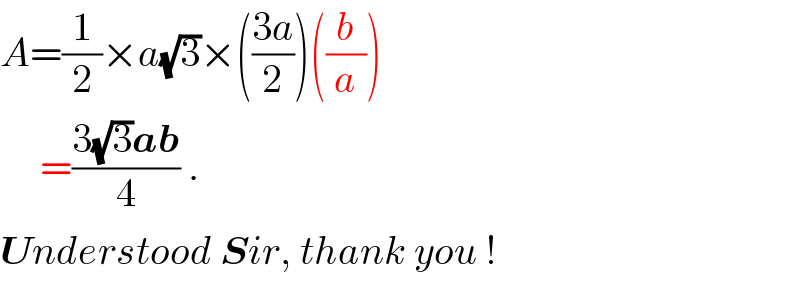
Question and Answers Forum
Question Number 35390 by ajfour last updated on 18/May/18

Commented by ajfour last updated on 18/May/18

Commented by MJS last updated on 18/May/18

Commented by MJS last updated on 18/May/18

Commented by ajfour last updated on 18/May/18

Commented by MJS last updated on 18/May/18

Commented by ajfour last updated on 18/May/18

Answered by rahul 19 last updated on 18/May/18

Commented by rahul 19 last updated on 19/May/18

